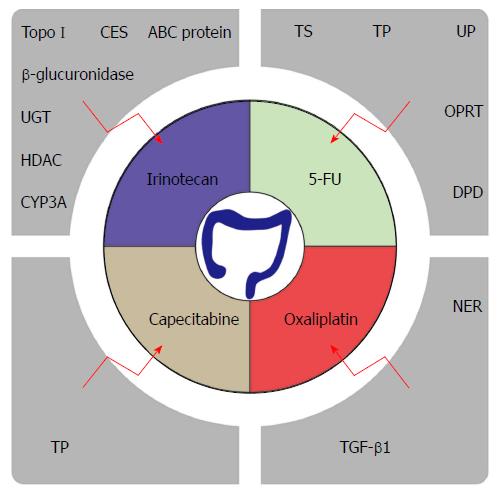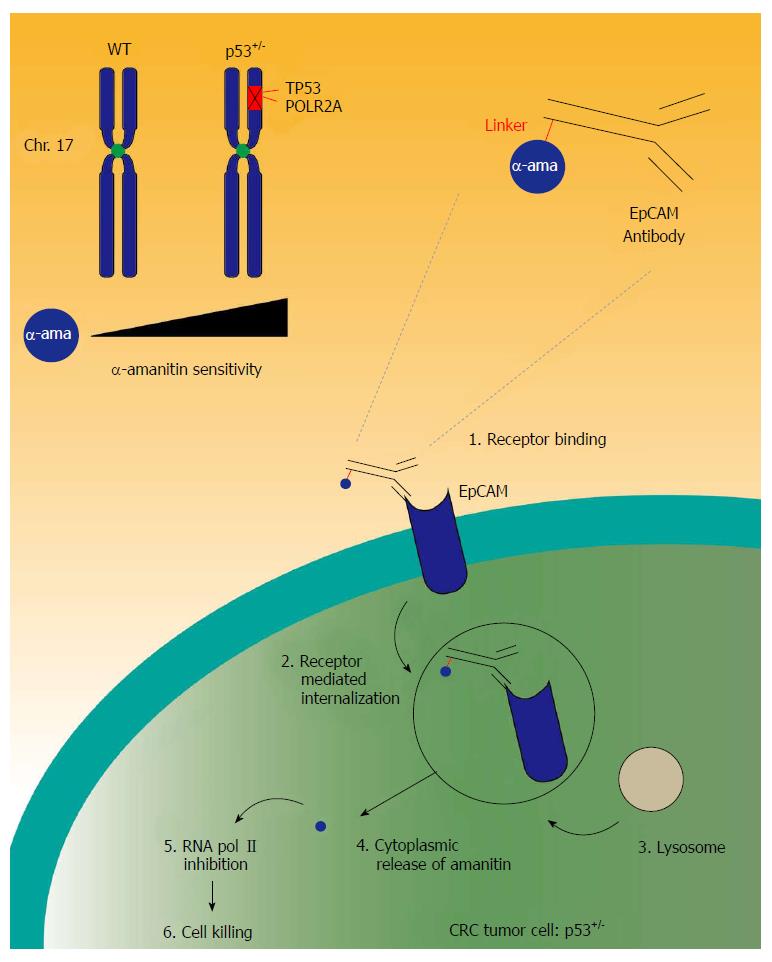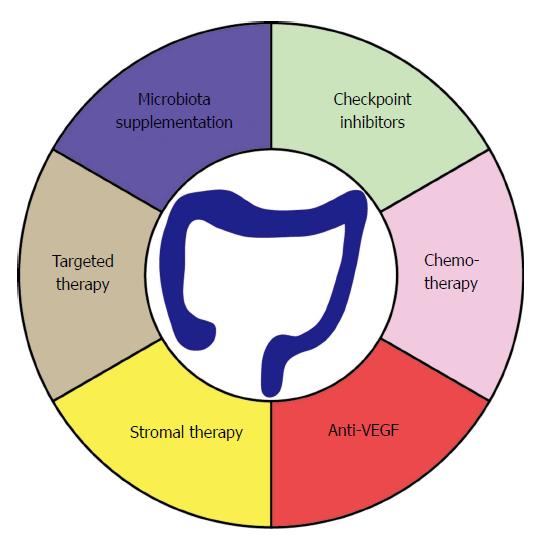Copyright
©The Author(s) 2018.
World J Gastroenterol. Sep 14, 2018; 24(34): 3834-3848
Published online Sep 14, 2018. doi: 10.3748/wjg.v24.i34.3834
Published online Sep 14, 2018. doi: 10.3748/wjg.v24.i34.3834
Figure 1 Potential mechanisms of resistance to chemotherapy agents.
In this schematic representation, the grey boxes highlight major contributors to chemotherapy resistance of irinotecan, 5-FU, capecitabine and oxaliplatin. TopoI: TopoisomeraseI; CES: Carboxylesterases; UGT: Uridine diphosphate glucuronosyltransferase; CYP3A: Hepatic cytochrome P450 enzymes; HDAC: Histone deacetylase; ABC protein: ATP-binding cassette transporter protein; TP: Thymidine phosphorylase; NER: Nucleotide excision repair; TGF-β1: Transforming growth factor β1; TS: Thymidylate synthase; UP: Uridine phosphorylase; OPRT: Orotate phosphoribosyl transferase; DPD: Dihydropyrimidine dehydrogenase.
Figure 2 Working model of α-amanitin antibody-drug conjugates.
Genomic deletion of p53 frequently encompasses neighboring essential genes such as POLR2A. Colorectal cancer (CRC) cells displaying this loss are vulnerable to α-amanitin. The figure summarizes the different steps in α-amanitin-based antibody drug conjugate (ADC) killing of CRC cells with hemizygous p53 loss. (1) The ADC binds to CRC cells expressing epithelial cell adhesion molecule (EpCAM). (2) Hereafter, the ADC is internalized via receptor-mediated endocytosis. After fusing with lysozyme (3) the α-amanitin is released in the cytoplasm (4), leading to inhibition of the catalytic subunit of RNA polymerase II complex (5). Suppression of POLR2A will ultimately lead to cell death (6).
Figure 3 Combination therapies for the development of durable colorectal cancer responses.
Durable cancer responses are impeded by a dysfunctional immunological control. Strategies aiming to boost T cell-mediated immune responses will most likely need the combination of therapies that counter the tumor and their environment-mediated escape mechanisms avoiding T-cell recognition as well as down-regulation of T-cell mediated functions. In this figure, we list potential interesting combinations leading to durable T-cell mediated killing for CRC. CRC: Colorectal cancer; VEGF: Vascular endothelial growth factor.
- Citation: Van der Jeught K, Xu HC, Li YJ, Lu XB, Ji G. Drug resistance and new therapies in colorectal cancer. World J Gastroenterol 2018; 24(34): 3834-3848
- URL: https://www.wjgnet.com/1007-9327/full/v24/i34/3834.htm
- DOI: https://dx.doi.org/10.3748/wjg.v24.i34.3834











